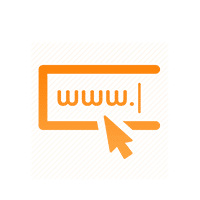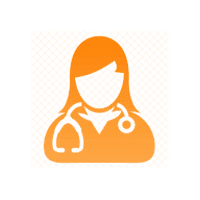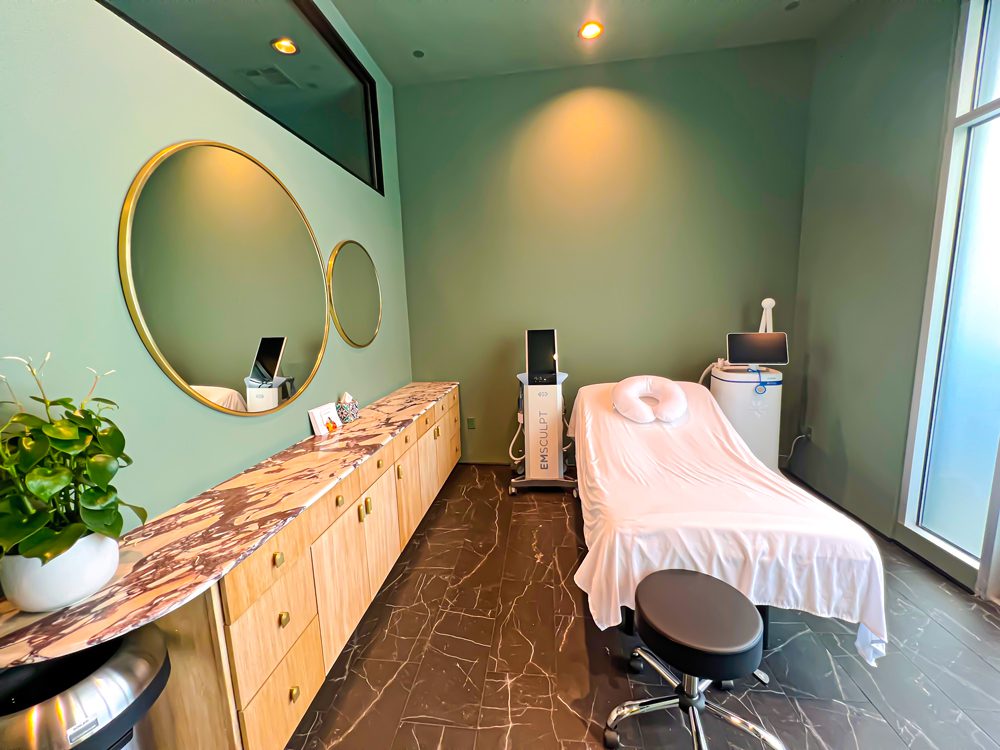Ketamine Therapy
Free yourself from anxiety & depression
Safe, Personalized Ketamine Treatments

Complete Our Free Online Health Assessment

Book Your Free Medical Evaluation

Once Cleared, Book & Receive Your Treatment
How the Ketamine Process Works
Personalized Consultation
Develop a tailored treatment plan.
Infusion Appointments
Receive infusions in calm, private settings. Available early, late, and weekends at three locations.
Safety Monitoring
Continuous monitoring by our experienced team ensures your safety.
Follow-Up Care
Regular follow-up appointments to track progress and adjust your treatment plan as needed.
How We Make Ketamine Therapy Simple and Effective
Simple Scheduling
Book your consultation and infusion appointments easily through our online system or by calling our friendly staff.
Personalized Care
Our experienced team provides individualized treatment plans tailored to your unique needs.
Comfortable Environment
Receive your infusions in a calm environment with comforting amenities.
Continuous Support
From your initial consultation through follow-up care, our compassionate team is here to guide you every step of the way.
Ketamine Therapy is a cutting-edge treatment that rebalances neural pathways and targets specific brain receptors, providing rapid relief and improved mental wellness. It offers a breakthrough alternative for those seeking effective, non-traditional therapies, offering fast and lasting results.
Ketamine works by rapidly acting on the brain’s NMDA receptors, which are involved in mood regulation and synaptic plasticity. By blocking these receptors, ketamine increases the levels of glutamate, a neurotransmitter that promotes the growth and connection of neural pathways. This process helps to restore healthy neural communication, reduce symptoms of depression, anxiety, and other mental health conditions, and improve overall mental clarity and well-being. The unique mechanism of ketamine allows it to produce fast-acting and long-lasting effects, often providing relief within hours and sustaining benefits for weeks to months.
Ketamine Therapy at Cienega Medical
Discover our comprehensive ketamine treatment packages with significant savings.
Package Pricing
Additional discounts for multiple sessions
Ketamine IV – 4 Sessions ($650 each)
| $3,000 $2,600
Recommended For: Short-term intensive treatment for moderate symptoms
Frequency: Once a week for 4 weeks or twice a week for 2 weeks
Ketamine IV – 8 Sessions ($550 each)
| $6,000 $4,400
Recommended For: Comprehensive initial treatment for moderate to severe symptoms
Frequency: Twice a week for 4 weeks
Ketamine IV – 12 Sessions ($450 each)
| $9,000 $5,400
Recommended For: Long-term treatment for enhancing mental wellness and mood.
Frequency: Twice a week for 6 weeks
Ketamine IV & Nad-On – 4 Sessions ($999 each)
| $4,396 $3,996
Recommended For: Short-term intensive treatment for moderate symptoms with enhanced benefits from NAD
Frequency: Once a week for 4 weeks or twice a week for 2 weeks
Ketamine IV & Nad-On – 8 Sessions ($899 each)
| $8,792 $7,192
Recommended For: Comprehensive initial treatment for moderate to severe symptoms with NAD benefits
Frequency: Twice a week for 4 weeks
Ketamine IV & Nad-On – 12 Sessions ($799 each)
| $13,188 $9,588
Recommended For: Long-term treatment for enhancing mental wellness and mood with NAD benefits
Frequency: Twice a week for 6 weeks
*Some restrictions may apply, inquire for details
FAQ
Click on a question to see more
-
Is Ketamine Therapy Safe?
Yes, ketamine has been used safely for decades in anesthesia. At Cienega Medical, infusions are administered by experienced professionals in a controlled environment, ensuring safety and efficacy throughout your treatment.
-
How Does Ketamine Work?
Ketamine acts on specific brain receptors to rebalance neural pathways, offering rapid relief from depression, PTSD, and chronic pain, often succeeding where traditional therapies do not.
-
What Conditions Does Ketamine Therapy Treat?
Ketamine infusions offer hope for those with depression, PTSD, chronic pain, anxiety, OCD, and emotional dysregulation, especially when other treatments haven't worked.
-
What Symptoms Indicate Someone Might Benefit From Ketamine Therapy?
Candidates for Ketamine Therapy often experience persistent depression, PTSD, chronic pain, severe anxiety, OCD, or emotional dysregulation that hasn't responded well to traditional treatments.
-
How Soon Will I See Results
Many patients start noticing improvements after just one or two sessions. However, individual results may vary based on the condition being treated and the patient's overall health and response to the therapy.
-
How Many Infusions Will I Need
The number of infusions required varies by individual and condition. Typically, a series of six infusions over two to three weeks is recommended for optimal results.
-
Are There Negative Side Effects From Ketamine?
Side effects can include dizziness, nausea, and dissociation, but they are generally short-lived. Our team monitors you closely to manage any adverse effects and ensure your comfort.
-
How Should I Prepare For My Ketamine Infusion Appointment?
To ensure a comfortable experience, pack headphones, wear super comfy, warm clothing like sweats, and bring a sleep mask. Schedule your appointment on a day with no meetings or obligations before or after your treatment. Make sure you have no work or family obligations after your treatment. Preparation includes fasting (no food or drink for 4 hours), avoiding alcohol and certain medications, and arranging transportation home. Detailed instructions will be provided during your consultation to ensure you're fully prepared for your treatment.
-
Are There Any Dietary Restrictions Before Or After The Ketamine Infusion?
You may need to fast for a few hours before your session. Detailed dietary guidelines will be provided during your consultation to ensure the best treatment experience.
-
Can I Smoke Weed Before My Ketamine Infusion?
It is recommended to avoid smoking weed before your ketamine infusion. Cannabis can interact with ketamine and potentially alter its effects. Please discuss any cannabis use with your provider during your consultation for personalized advice.
-
Can I Use Narcotics Before My Ketamine Infusion?
Using narcotics before your ketamine infusion is strongly discouraged. Narcotics can interfere with the effectiveness and safety of ketamine therapy. Inform your provider of any narcotic use to ensure a safe and effective treatment plan.
-
What Should I Bring To My Ketamine Infusion Appointment?
Bring any necessary medical records, a list of current medications, headphones, a sleep mask, and have a music selection ready on your phone that includes relaxing or meditative music. Comfortable clothing and a calm mindset can also enhance your experience. Additionally, ensure you have a companion for transportation.
-
Will I Be Able To Drive After My Infusion?
No, it is not safe to drive after a ketamine infusion. Patients must arrange for a responsible adult to drive them home post-treatment, as the effects of ketamine can impair motor skills and judgment.
-
What Is Included In Cienega Medical's Ketamine Experience?
Our ketamine therapy includes a comprehensive consultation, customized treatment plan, comfortable infusion sessions, continuous monitoring, and follow-up care to ensure the best possible outcomes.
-
What Does Cienega Medical Charge For Its Ketamine Treatments?
Pricing varies based on the specific treatment plan and individual needs. Please contact us directly for detailed information on our ketamine therapy pricing and packages.
-
What Are Some Add-ons That May Enhance My Results?
Add-ons such as vitamin infusions, mindfulness coaching, and other integrative therapies can complement your ketamine treatment, enhancing overall results and promoting well-being.
-
How Often Should I Receive A Ketamine Infusion?
The frequency of ketamine infusions varies depending on individual needs and treatment response. Initially, patients may receive a series of six infusions over two to three weeks, with 4, 8, or 12 total sessions being common. Maintenance infusions are typically spaced out based on progress and ongoing needs, often occurring every few weeks to months. Your provider will tailor a schedule to optimize your treatment outcomes.
-
How Do I Know That Ketamine Is Safe To Use?
Ketamine is FDA-approved for certain uses and has a long history of safe use in medical settings. At Cienega Medical, we follow strict protocols to ensure the safety of our patients.
-
Can I Try It Just Once?
While a single infusion can provide some relief, a series of treatments is typically recommended for sustained benefits. We tailor the number of sessions to meet each patient's needs.
-
Will I Receive A Benefit If I Stop My Treatments Mid-way?
Partial treatment may offer some benefit, but completing the recommended series is crucial for achieving the best results and maintaining long-term improvements.
-
Why Must I Arrange A Ride After My Ketamine Infusion?
Ketamine can temporarily impair motor skills and cognitive function, making it unsafe to drive. Arranging a ride ensures your safety and adherence to treatment protocols, allowing you to return home safely and comfortably.
-
What Are The Differences Between At-home And In-clinic Ketamine?
In-clinic treatments provide a controlled environment with professional supervision, ensuring safety and efficacy. At-home treatments lack this level of monitoring and may pose higher risks.
-
What Are The Different Types Of Ketamine Options?
Ketamine can be administered via IM or IV infusion, nasal spray, or oral lozenges. Each method has its specific uses, benefits, and considerations based on the patient's condition and needs.
-
What If I Want To Transfer My Care From Another Practice?
We welcome new patients transferring from other practices. Please bring your medical records and treatment history to your consultation so we can seamlessly continue your care.
-
What Steps Does Cienega Medical Take To Ensure My Best Experience?
Our dedicated team provides personalized care, continuous monitoring, comfortable treatment environments, and comprehensive follow-up to ensure the best possible patient experience.
-
Can I Shorten Or Lengthen My Ketamine Experience?
Treatment plans are flexible and can be adjusted based on your progress and needs. Discuss any changes with your treatment provider to ensure optimal outcomes.
-
How Is This Different Than Mdma
Ketamine and MDMA are distinct substances with different therapeutic uses and effects. Ketamine is primarily used for its rapid antidepressant effects, while MDMA is being researched for PTSD treatment.
-
How Does This Help With Anxiety And Depression?
Ketamine works on different brain receptors than traditional antidepressants, often providing rapid relief for treatment-resistant depression and anxiety, making it a powerful option for those who haven't found success with other treatments.
-
How Do I Get The Best Experience?
To get the best experience, follow pre-treatment instructions, maintain open communication with your provider, and adhere to post-treatment guidelines. Consider journaling your thoughts and feelings before and after the session, and take the day off to fully relax and integrate the experience. This ensures the best therapeutic outcomes and overall experience.
-
How Will I Feel After A Ketamine Experience?
Patients often feel relaxed and may experience mild dissociation. These effects typically subside within a few hours. We provide a safe environment and follow-up care to support your recovery.
-
How Long Does Each Ketamine Infusion Session Last?
Each infusion session typically lasts 40-60 minutes, followed by a short recovery period in our comfortable treatment rooms. Patients often experience mood improvement and pain relief within hours to days after treatment.
-
Can I Combine Ketamine Therapy With Other Treatments?
Yes, ketamine can be part of a comprehensive treatment plan that includes other therapies. Discuss your current treatments with your provider to ensure compatibility and safety.
-
How Does Ketamine Therapy Compare To Traditional Antidepressants?
Ketamine often provides faster relief for depression and anxiety compared to traditional antidepressants, which can take weeks to show effects. It's especially beneficial for treatment-resistant cases.
-
Are There Any Long-term Side Effects Of Ketamine Therapy?
Long-term side effects are rare but can include cognitive changes with prolonged use. Regular follow-up and monitoring by your provider help mitigate risks and ensure safe, effective treatment.
-
How Should I Prepare For My Ketamine Infusion Appointment?
Arrive in a relaxed state and on time. We cannot expedite the process due to scheduling. Preparation includes fasting, avoiding alcohol and certain medications, and arranging transportation home.
-
Can I Have Longer Ketamine Infusion Sessions?
Yes, we offer longer drips (up to 2 hours) for deeper therapy, depending on your treatment needs and goals.
-
Do I Need To Arrange A Ride Home After My Ketamine Infusion?
Yes, you must arrange a ride home after your ketamine infusion. You cannot drive yourself home after a ketamine drip, so please arrange transportation in advance.
-
Can I Have Longer Ketamine Infusion Sessions?
Yes, we offer longer drips (up to 2 hours) for deeper therapy, depending on your treatment needs and goals. Please ask for more information during your consultation.
-
What Do I Need To Do To Get Ready For A Ketatmine Infusion?
To ensure a comfortable experience, pack headphones, wear super comfy, warm clothing like sweats, and bring a sleep mask. Schedule your appointment on a day with no meetings or obligations before or after your treatment. Make sure you have no work or family obligations after your treatment. Preparation includes fasting (no food or drink for 4 hours), avoiding alcohol and certain medications, and arranging transportation home. Detailed instructions will be provided during your consultation to ensure you're fully prepared for your treatment.
-
What Should I Expect During Ketamine Therapy?
Arrive in comfortable clothing. Session includes a check-in, 40-60 minute infusion, short recovery period, and you need a ride home.
-
Who Should Avoid Ketamine Therapy?
Individuals with active mania, psychosis, schizophrenia, uncontrolled bipolar disorder, or conditions with high blood pressure risk should avoid ketamine therapy. It is also not recommended for those who are pregnant, breastfeeding, or have a history of increased intracranial pressure, current illegal substance use, recent traumatic brain injury, or hypersensitivity to ketamine. We do not treat those who appear intoxicated or under the influence of non-prescribed substances.
-
How Does Ketamine Affect The Brain?
NMDA Receptor Antagonism: Blocks NMDA receptors, reducing excitatory actions of glutamate. Dissociation and Pain Relief: Induces a dissociative state and pain relief. Neuroplasticity: Promotes synaptogenesis and neuroplasticity. Impact on Other Neurotransmitters: Increases serotonin, dopamine, and norepinephrine levels. Alteration of Brain Network Activity: Changes brain network connectivity, affecting mood regulation and perception.
-
What Is Nmda Receptor Antagonism?
Ketamine blocks NMDA receptors, reducing the excitatory actions of glutamate in the brain, leading to its anesthetic and dissociative effects.
-
How Does Ketamine Provide Pain Relief And Dissociation?
By blocking NMDA receptors, ketamine induces a dissociative state and provides pain relief by interrupting normal pain transmission pathways.
-
What Is Neuroplasticity And How Does Ketamine Promote It?
Ketamine promotes synaptogenesis and neuroplasticity, increasing the release of brain-derived neurotrophic factor (BDNF), which supports the growth and differentiation of new neurons and synapses.
-
How Does Ketamine Affect Other Neurotransmitters?
Ketamine increases levels of serotonin, dopamine, and norepinephrine, contributing to its antidepressant effects.
-
What Is The Impact Of Ketamine On Brain Network Activity?
Ketamine changes the functional connectivity of various brain networks, affecting mood regulation and perception, which can lead to hallucinogenic experiences and altered perception.
-
What Is The History Of Ketamine?
Ketamine has been in use since the 1960s. First synthesized in 1962 by chemist Calvin Stevens, it gained FDA approval as an anesthetic in 1970. It's widely used in medical and veterinary practices for anesthesia and pain management, and recently, for treating mental health conditions like depression and PTSD.
Your Team of Dedicated Professionals
Here to Serve A 5-Star Experience





3 Beautiful Locations to Serve You
Open Daily, Open Late










Awards
Cienega Med Spa is the Trusted Authority on Non-Invasive Cosmetic Procedures





